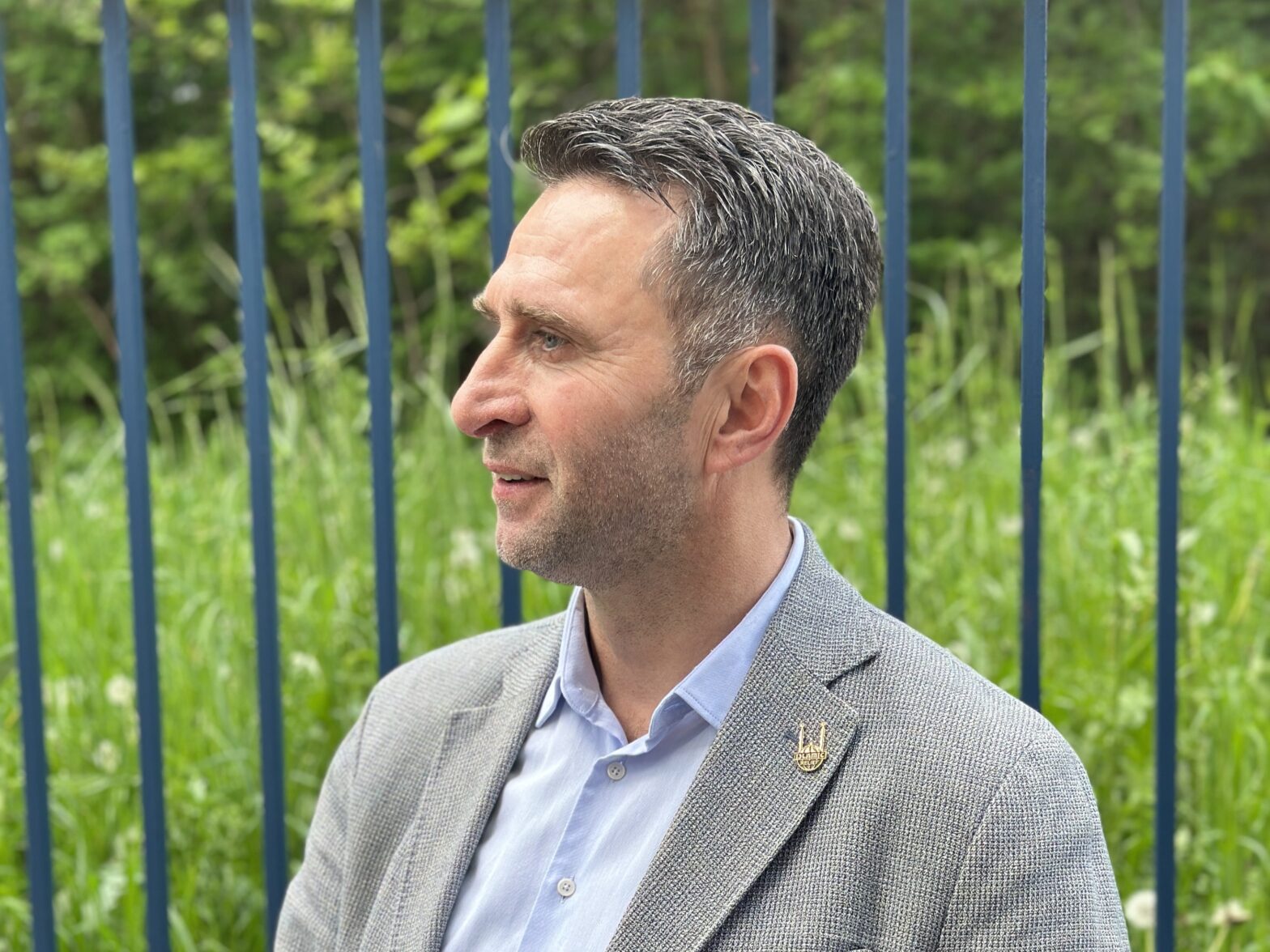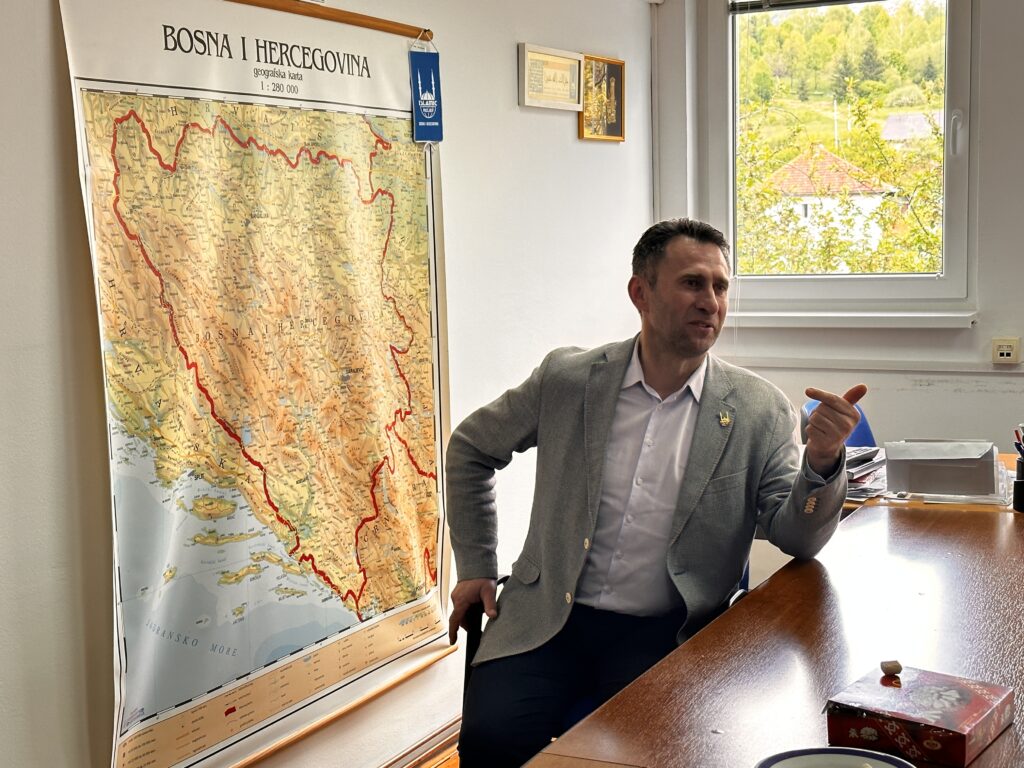
“My name is Emir Cica and I am 49. I am currently Country Director of the Islamic Relief Bosnia office. I work with local and international partners and many other different things.
“I joined Islamic Relief in 2006, in the micro credit programme. I was a local officer, and it was my first job, and after a time I was offered to join the administration and programming department.
“At that time, I was responsible for a small part of Islamic Relief Bosnia’s activities and today as Country Director I am responsible for everything that is happening in this organisation, and this position is very demanding and challenging.”
Emir grew up in Sarajevo and was just a teenager when war broke out in Bosnia.
“When the war started in 1992, I was 16 and I was in the second year of high school, and I remember the first attack on civilians, by snipers inside the Hotel Holiday Inn.
“I remember the first shots that fell on the buildings near my home, but at that time I maybe didn’t completely understand what war can bring.
“Maybe 6 months after that, I lost my grandmother. She was killed by paramilitary forces. She was burned in her cottage. And they also killed my uncle. He had cancer and my grandmother was 86 years old… I cannot understand what sin she could’ve been guilty of [to be killed like that]. They killed an old lady and a sick guy without any reason to.
“Then it was a very tough time for my family, especially for my mother, but you know, when you are a teenager, you cannot completely understand everything. But now, I understand, I know that it is so different.”
The Siege of Sarajevo lasted from April 1992 to February 1996. It was the longest siege of a capital city in modern history, where the Army of Republika Srpska (VRS) and the Yugoslav People’s Army launched daily shelling attacked from the hills and forests surrounding the city, while snipers targeted anyone that moved on the streets.
 “I witnessed everything that happened in Sarajevo during the war. Sarajevo was under siege for the longest time in history, for more than 3 and half years.
“I witnessed everything that happened in Sarajevo during the war. Sarajevo was under siege for the longest time in history, for more than 3 and half years.
“During the siege they killed around 1,600 children, it was a very hard and difficult time.
“I was 9 during the Winter Olympic Games [in 1984] – just 8 years after that it was war.
“You cannot prepare people for that, that people started to kill us for no reason. The paramilitary forces, Republika Srpska supported by Yugoslav army, organised snipers to shoot civilians in Sarajevo.
“I directly witnessed everything, and I saw a lot of suffering and death. Children bled tears. Unfortunately, it is part of war.”
Emir and his family were trapped in the besieged city where they struggled for food. Humanitarian aid became their lifeline.
“I know that Islamic Relief were one of the first international organisations that came into Bosnia during the war. I once received support from Islamic Relief. I remember receiving a food parcel.
“It was very important for my family, because we didn’t have enough food then, didn’t have electricity [or] many different things. Sarajevo was under siege, and I remember this so clearly.”
Emir did not learn about the massacre at Srebrenica until after the war had ended – but knows how the atrocity has shaped Islamic Relief’s work since in the 30 years since.
“After the war Islamic Relief tried to support people so they could remain in their homes. We had a problem in getting enough support, especially for returnees to Republika Srpska, areas like Srebrenica and Bratunac, and those surrounding areas.
“So Islamic Relief Bosnia and Herzegovina implemented many different projects in Srebrenica [and across Republika Srpska] – like the reconstruction of houses, setting up rosemary farms and greenhouses, projects to provide livestock, orphan sponsorship, seasonal programmes like qurbani food distributions and winterisation, and providing school stationary.
“Everything we did aimed to support victims of Srebrenica genocide. Unfortunately, 30 years on, they are still facing many different challenges in those cities [across Republika Srpska].”
Emir has been working for Islamic Relief for nearly 20 years now, and has seen first-hand how many lives have been touched by the vital work we do to support communities through disasters, deliver development programming, and campaign to address the root causes of poverty.
“Generally, the focus of Islamic Relief Bosnia and Herzegovina currently is income generation projects. One of the biggest challenges for us is the very high unemployment rate, it is the reason why people, particularly young people, are leaving the country. We are trying now to provide people with a regular income, and we also try to prepare projects that guard the dignity of the individuals so they can make a living from their work.
“Islamic Relief currently supports more than 6,000 orphaned children and has directly supported more than 1,000 children who lost their fathers in the Srebrenica genocide.”
Having had his burden eased by Islamic Relief during the brutal siege, Emir is very proud to now be leading the organisation’s efforts in Bosnia.
“I am so proud because Islamic Relief is a humanitarian organisation that supports people from different nations, different religions and cultures, and we never discriminate.
“Islamic Relief is an organisation with Islamic values, but that doesn’t mean we only support Muslims. “We support people who are in need. We recognise the needs of each person and their rights as a human being.”



